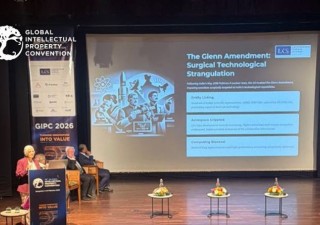ASCI-scape: Mapping the terrain of advertising self-regulation
31 August 2024

Advertising forms a critical component of “commercial speech” in India as the public at large benefits by the information which is made available to them through advertisements, thereby enhancing their knowledge and decision-making capabilities.
Through the years, the Indian courts have adopted a nuanced approach, allowing for a degree of liberty in advertising, acknowledging that some level of exaggeration or “puffery” may be necessary in commercial free speech. However, does this mean that advertisements under the guise of puffery and hype can act as a carte blanche for unfounded claims or deceptive practices or are there clear limitations and scrutiny to prevent unfounded statements and deceptive practices?
In 2022, the Supreme Court took cognizance of false and misleading advertisements by Patanjali Ayurved Limited in the case of Indian Medical Association & Anr. v. Union of India. These advertisements were found in violation of the Drugs and Magic Remedies (Objectionable Advertisements) Act, 1954. In its order dated April 23, 2024, the court expressed concerns over the increasing number of misleading advertisements and the lack of accountability from manufacturers, promoters and the media.
Following these concerns, the Supreme Court, in its order dated May 7, 2024, mandated that advertisers submit a self-declaration certifying the truthfulness of their advertisements before publication. This declaration must be uploaded on the Broadcast Seva Portal for TV and radio advertisements or the Press Council of India’s portal for print and internet ads. The Government of India implemented these directions through an advisory issued on July 3, 2024, requiring advertisers, especially in the food and health sectors, to provide proof of compliance before any advertisement is aired or published.
The High Court of Madras in Hindustan Unilever Limited v. Reckitt Benckiser (India) Ltd, while discussing the Indian scenario on disparaging advertisements, observed that there is no codified law regulating advertisements in India. Amongst all this, there is an entity which acts as an advertising watchdog in India, namely, The Advertising Standards Council of India (ASCI).
About ASCI and the ASCI Advertising Code
ASCI is a company registered under the Companies Act, 1956, established in the year 1985 with the sponsorship of advertisers, media, advertising agencies and other professional and ancillary services, industries connected with advertising. ASCI supports consumers and advertisers by self-regulating advertisement to ensure that they are decent, honest, safe, and fair.
In HIM Rishi Sansthan v. Advertising Standards Council of India & Anr., the High Court of Delhi directed the Union of India that it was under an obligation to enforce the said provisions whenever a violation is brought to its notice.
Legal status of the ASCI Code and recommendations from the ASCI complaint infrastructure
ASCI is an independent self-regulatory body and does not hold the status of any judicial, quasi-judicial or a statutory body which has been intrusted with any powers by way of any law in force or any government notification.
The High Court of Delhi in Metro Tyres Ltd. v. The Advertising Standards Counsil of India, has observed the role and importance of ASCI in regulating advertisements. The court opined that institutions such as ASCI should be encouraged as such institutions contribute towards reducing litigation and provide a platform and an opportunity to the constituents of the same industry/sector to settle their inter se disputes amicably. The court relied upon Indraprastha People v. Union of India, wherein the Division Bench examined the context of the Cable Television Networks (Regulation) Act of 1995 and the Cable Television Networks Rule of 1994, and emphasized that compliance with this code is voluntary, driven by the media's desire to maintain professional credibility and public trust.
Check and balances put in place with respect to the functioning of ASCI
The central question here is, can ASCI usurp the proceedings of the court? This question was dealt with by the Court of Bombay in Century Plyboards (India) Ltd. v. Advertising Standards Council of India, where the court held thatit is only the state in exercise of powers under Article 19 that can pass restrictive orders. The court opined that the rules of ASCI are designed only to complement legal control and not usurp them.
The ASCI Complaints Procedure emphasizes adherence to natural justice. However, the Bombay High Court criticized ASCI in the case of Teleshop Teleshopping v. Advertising Standards Council of India & Anr. for failing to uphold these principles. The court noted that ASCI, as a private company, lacks statutory authority and cannot impose restrictions on non-members under voluntary self-regulation.
The court emphasized that while ASCI can function as a self-regulatory body for its members, its actions – especially when imposing restrictions without due process – overstep its authority. ASCI’s decisions are non-binding on non-members unless they willingly accept its jurisdiction. As a private entity, ASCI cannot infringe on the legal business rights of non-members, which limits its regulatory reach.
In Procter & Gamble Home Products v. Hindustan Unilever Ltd., the Delhi High Court clarified that although the ASCI Code has statutory recognition under the Cable Television Networks Act, it does not override civil court jurisdiction. ASCI can only issue recommendations and forward cases of non-compliance to authorities. These recommendations do not prevent parties from seeking relief through the courts, nor do they bind the courts’ decisions.
Conclusion
ASCI stands as a pillar of ethical governance and accountability within the nation’s advertising sector. As deceptive advertising continues to be a challenge, ASCI promotes transparency, fairness, and consumer protection. High-profile cases, such as those involving Patanjali Ayurved Limited, highlight its role in addressing false claims. While ASCI’s guidelines primarily govern its members, its occasional influence on non-members, particularly through broadcaster compliance, raises concerns. There is a need for enforceable mechanisms to ensure broader compliance across the industry.
By examining the practices of its counterparts in the UK and the U.S., ASCI may strengthen its framework to ensure wider compliance across both members and non-members, enhancing transparency and accountability within India’s advertising industry.









